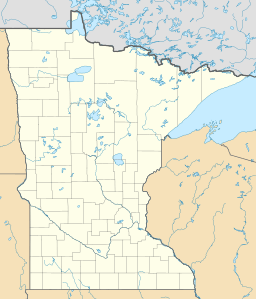Roland Lake (Minnesota) facts for kids
Quick facts for kids Roland Lake |
|
|---|---|
| Location | Douglas County, Minnesota |
| Coordinates | 45°47′54″N 95°43′20″W / 45.79833°N 95.72222°W |
| Type | lake |
Roland Lake is a lake located in Douglas County, Minnesota, in the U.S. state of Minnesota. It is a natural body of water.
Contents
Discover Roland Lake
Roland Lake is a quiet lake found in Douglas County, Minnesota. Lakes like Roland Lake are important parts of the natural world. They provide homes for many plants and animals. They also offer places for people to enjoy nature.
Where is Roland Lake?
Roland Lake is in Douglas County, Minnesota. Minnesota is a state in the United States. It is often called the "Land of 10,000 Lakes." This nickname shows how many lakes are found there. Douglas County is in the central part of Minnesota. It has many beautiful lakes.
How Did Roland Lake Get Its Name?
Roland Lake was named after an early settler. His name was John Roland. Pioneers were people who moved to new areas. They helped to build communities. Naming a lake after a person was a common way to honor them. It also helped to remember their contributions to the area.
What Makes Lakes Special?
Lakes are large bodies of water. They are surrounded by land. They can be formed in many ways. Some lakes are made by glaciers. Others are formed by rivers or volcanoes. Lakes are different from oceans because they are not salty. Most lakes have fresh water.
Lake Ecosystems
Lakes are home to many living things. Fish, birds, and insects live in and around lakes. Different types of plants also grow in the water. These plants and animals form an ecosystem. An ecosystem is a community of living things. They interact with each other and their environment.
Importance of Lakes
Lakes are very important for many reasons. They provide drinking water for people. They also help to control floods. Lakes are popular places for fun activities. People enjoy fishing, boating, and swimming in lakes. They are also important for the environment. Lakes help to keep the air clean. They also support wildlife.


